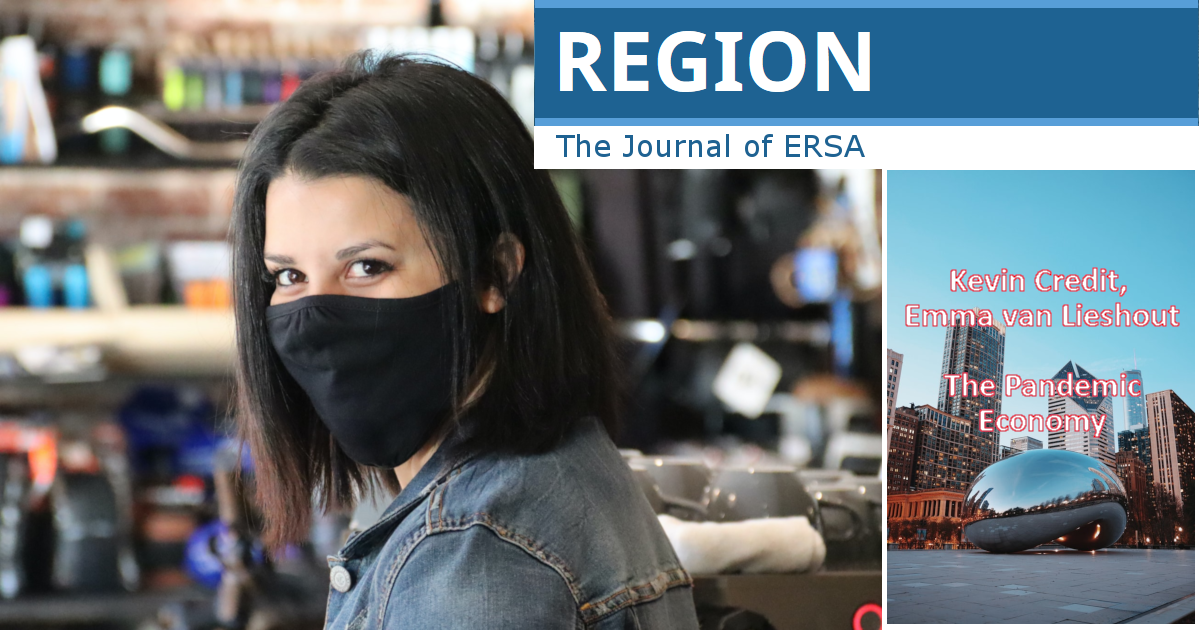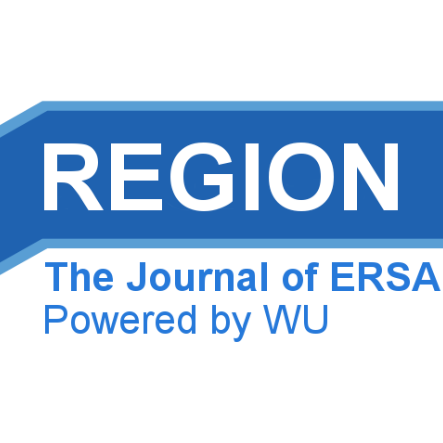The Pandemic Economy
Exploring the change in new business license activity in Chicago, USA from March – September, 2020
DOI:
https://doi.org/10.18335/region.v8i2.349Abstract
Since its emergence in 2019, the worldwide spread of the novel coronavirus SARS-CoV-2 (COVID-19) has created a vast economic crisis as government lockdowns place considerable strain on businesses of all kinds – particularly those that rely on face-to-face contact, such as retail restaurants, and personal services. Given the recent emergence of the virus and lags in data collection and publication, the highest-quality fine-grained spatial datasets on economic behavior will not reflect virus-related impacts for at least a year. At the same time, in order to make evidence-based decisions on policies regarding continuing lockdown and/or re-opening policies, local governments and researchers need to understand neighborhood-level economic effects much sooner than that. This paper makes use of the point-level Chicago Business License dataset, which is updated on a weekly basis, to examine the impact of the COVID-19 pandemic on new business activity in the City of Chicago. The results indicate that on average, from March to September 2020, total monthly new business starts have declined by 33.4% compared to the monthly average of new starts in the City from January 2016 to December 2019. Food service and retail businesses have been hardest hit during this period, while chains of all types have seen larger average declines in new startup activity than independent businesses. These patterns demonstrate interesting intra-urban spatial heterogeneity; ZIP codes with the largest pandemic-related declines in new business activity tend to be have larger rates average rates of new business creation to begin with and also have less dense, diverse, and walkable built environments (defined in more detail below), while, interestingly, observed COVID-19 case rates do not appear to have an individually-significant impact on new business deficits.

Downloads
Published
How to Cite
Issue
Section
License
Copyright (c) 2021 Kevin Credit, Emma van Lieshout

This work is licensed under a Creative Commons Attribution 4.0 International License.
REGION is an open journal, and uses the standard Creative Commons license: Copyright We want authors to retain the maximum control over their work consistent with the first goal. For this reason, authors who publish in REGION will release their articles under the Creative Commons Attribution license. This license allows anyone to copy and distribute the article provided that appropriate attribution is given to REGION and the authors. For details of the rights authors grant users of their work, see the "human-readable summary" of the license, with a link to the full license. (Note that "you" refers to a user, not an author, in the summary.) Upon submission, the authors agree that the following three items are true: 1) The manuscript named above: a) represents valid work and neither it nor any other that I have written with substantially similar content has been published before in any form except as a preprint, b) is not concurrently submitted to another publication, and c) does not infringe anyone’s copyright. The Author(s) holds ERSA, WU, REGION, and the Editors of REGION harmless against all copyright claims. d) I have, or a coauthor has, had sufficient access to the data to verify the manuscript’s scientific integrity. 2) If asked, I will provide or fully cooperate in providing the data on which the manuscript is based so the editors or their assignees can examine it (where possible) 3) For papers with more than one author, I as the submitter have the permission of the coauthors to submit this work, and all authors agree that the corresponding author will be the main correspondent with the editorial office, and review the edited manuscript and proof. If there is only one author, I will be the corresponding author and agree to handle these responsibilities.




